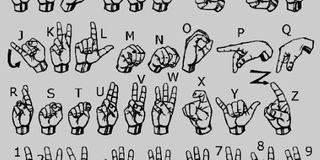PWDs demand hospital sign language interpreters

What you need to know:
- Mr Akoli tasked the government to introduce sign language integration into pre-service training for health workers.
People with hearing impairment have tasked the Ministry of Health to deploy health workers, who can interpret sign language, to ease communication.
Mr Joseph Akoli, the founder and team leader of Diversity Innovations Initiative, a youth-led organisation, said many people with hearing impairment lack proper health care due to language barrier.
“Sometimes they [people with hearing impairment] may have a health condition where they want to directly explain to the health worker without involving a third party. But unfortunately, I have not come across any health facilities with such health workers,” said Mr Akoli through an interpreter.
He made the remarks at the Uganda National Social Innovation in Health stakeholders workshop organised by Makerere University in partnership with the Swedish Embassy in Kampala on Tuesday.
Mr Akoli tasked the government to introduce sign language integration into pre-service training for health workers.
He revealed that the Diversity Innovations Initiative had partnered with Naguru Teenage Centre and Mukono Diocese School of Nursing and Midwifery to train more than 100 health workers in sign language, out of the targeted 500 medics.
Mr Akoli also noted that they have developed a diverse digital application to ease access to sexual and reproductive health information among adolescents and youth with hearing impairment.
When contacted, Mr Emmanuel Ainebyoona, the spokesperson of the Ministry of Health, said the government had already embarked on the process of recruiting sign language interpreters in public health facilities.
“The position is in the newly-approved structures for hospitals, only awaiting availability of wages,” Mr Ainebyoona said yesterday.
Ms Joy Edith Angulo, a former Gender, Youth, adolescent, and Social Inclusion Advisor for Family Health International partnership with KCCA, said: “So many times, they can’t have quality services because of the language barriers. I think just like some hospitals have social workers, it would be very great if we had interpreters at least, beginning with the high volume facilities or hospitals and health centres”.
Dr Phyllis Awor, a lecturer at the School of Public Health, Makerere University, who doubles as the lead of the social innovation in health initiative project, said research indicates that people with disability are among the vulnerable groups with poor health indicators.
“We recommend that our Ministry of Health and other parties do not leave behind the issue of gender, disability, and social division. We must find ways to support these disadvantaged groups,” she said.
[email protected]





